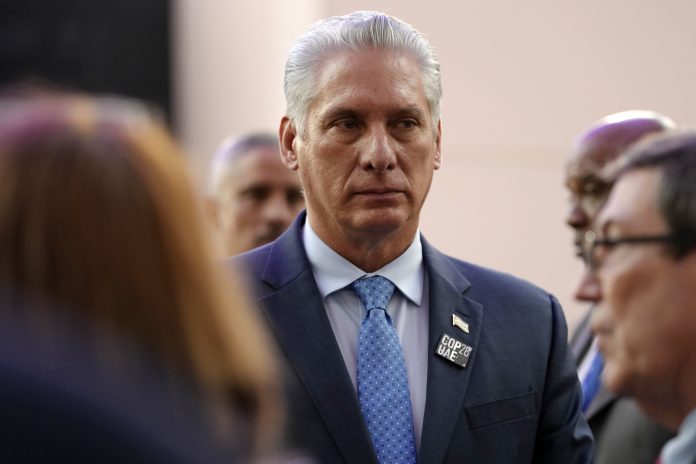Hundreds of people took part in a rare public protest in Santiago, Cuba’s second-largest city, on 17 March, prompting President Miguel Díaz-Canel to call for dialogue in an “atmosphere of tranquility and peace,” Euractiv informed.
According to social media, protesters in Santiago took to the streets chanting “power and food,” as power cuts in some areas lasted for 18 or more hours a day, escalating tensions on the island.
Cuba has been plunged into an economic crisis since the COVID-19 pandemic, with shortages of food, fuel and medicine leading to the migration of 400,000 people to the United States. Díaz-Canel confirmed the protest in Santiago shortly after the peaceful rally ended.
“Several people have expressed their dissatisfaction with the situation of electrical service and food distribution. The disposition of the authorities of the Party, the State and the Government is to attend to the complaints of our people, listen, dialogue, explain the numerous efforts that are being carried out to improve the situation, always in an atmosphere of tranquility and peace.”
Police arrived in Santiago to “control the situation” and “prevent violence,” according to state organisation CubaDebate. Beatriz Johnson, a Santiago Communist Party official, stated that protesters in the eastern Cuban city had behaved “respectfully” and listened “attentively” to government explanations about food and electricity shortages.
The US embassy in Havana indicated it was monitoring the protests in Santiago and beyond. Cuban Foreign Minister Bruno Rodriguez lambasted the US embassy’s comments late Sunday night, blaming the long-standing US trade embargo and sanctions for Cuba’s “acute economic situation.”
The US Government, especially its embassy in Cuba, must refrain from interfering in the country’s internal affairs and inciting social disorder.
Protests occur on the island exceedingly seldom, but they have been more frequent in recent years, as the country has been experiencing an economic crisis. Although Cuba’s 2019 constitution gives citizens the right to protest, the law has stalled in the legislature, leaving those who take to the streets in legal limbo.
